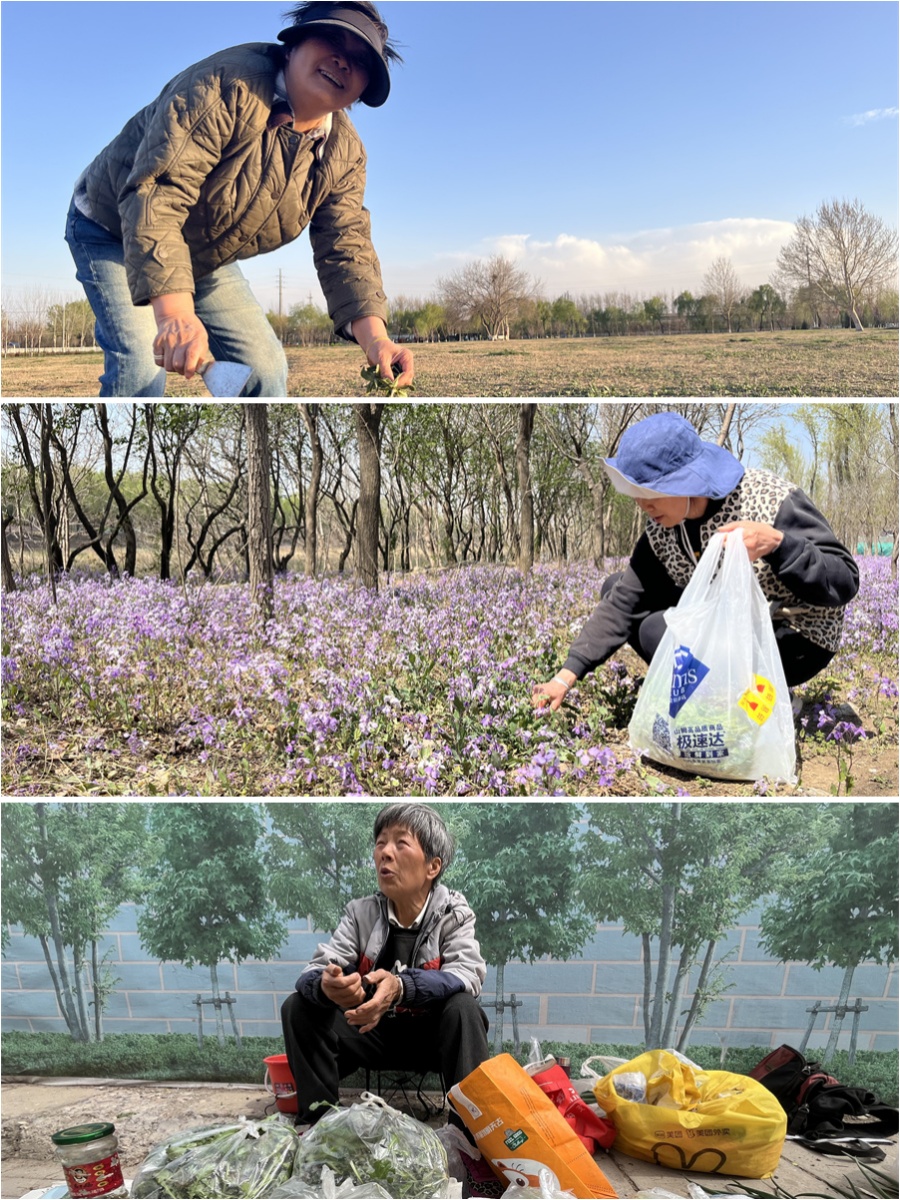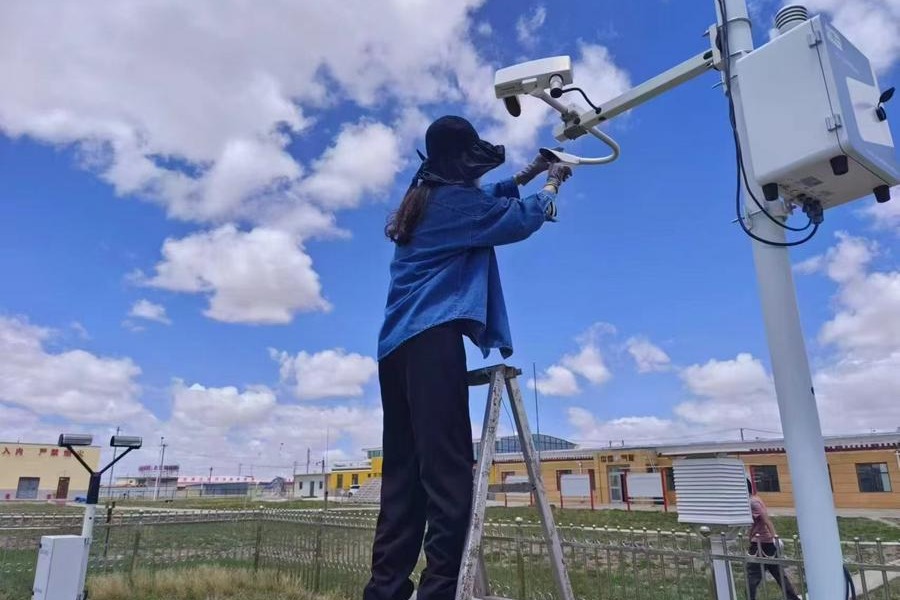Foraging adds natural flavor to fresh dishes
With arrival of spring, Beijingers head to suburbs to gather wild vegetables


Enjoying the process
However, foraging offers more than just culinary benefits. While a few foragers in Beijing view it as a simple form of exercise, others simply relish the act of hunting for different edible plants, finding joy in the search itself.
"The entire process is like doing repeated deep squats," said Shen Xiaohong, a retiree living near the Beijing Capital International Airport. "Your heart rate increases, and if you go in the morning, the sun warms your back. So I consider foraging a proper morning exercise."
She rarely ventures outdoors solely for foraging; instead, she incorporates it as a side activity during her morning walks. And she doesn't consume all of her harvests with her husband; instead, she shares them with friends in her neighborhood.
During weekend visits, her daughter, a young office worker, accompanies her mother on these walks and sometimes forages alongside Shen.
She can have a break from the constant pressure of work and digital distractions, Shen said. "While foraging, she doesn't have to check her phone or work messages for hours," the mother said.
Wu Feng, a 40-year-old office worker in Beijing, started foraging in the spring of 2021 during the COVID-19 pandemic. Because of travel restrictions, the outdoor enthusiast spent a lot of his spare time exploring the wilderness in Beijing.
While visiting Baihua Mountain scenic area, he met local women foraging in the forests, "collecting a kind of big tender leaf similar to lettuce".
"They told me it can be eaten with barbecue beef," Wu said.
At Yudushan Mountain in Beijing's Yanqing district, he met a ranger who picked young leaves of a wild pea flower on his regular patrol around the scenic area. "It would add a dish to his lunch," Wu said.
Wu was intrigued by foraging. Lacking any knowledge of edible wild vegetables, however, he didn't try.
Then one day, he visited a valley with his son and Lin Shu, the family's nanny. They stumbled upon a patch of pine forest. Lin, a 55-year-old rural woman who hailed from Hebei province and had migrated to Beijing for work, identified a type of "wild green onion", an edible vegetable she used to forage back in her hometown.
"She gathered a bag of the wild vegetable, stir-fried it with minced meat and mixed the meat sauce with noodles," Wu said. "It was a memorable culinary delight."
Lin is quite knowledgeable about wild vegetables in North China and has taken on the role of teaching her employer about these edible plants.
Wu has learned how to recognize a variety of common wild vegetables in Beijing, knowing that the wild onion is actually Longstamen onion bulb, or Chinese garlic, the leaves the women foraged on Baihua Mountains are a species of chrysanthemum distributed in forests in North China, and the wild pea flower from Yudushan Mountain is two-leaf vetch.
While on outings, he selectively forages, waiting for the right moment to gather wild vegetables. "I am quite picky when it comes to wild vegetables," he said. "I only choose those that grow in clean environments, ensuring they are fresh with the most tender leaves."
He usually forages each species of wild vegetable only once in a season. "The plants grow truly fast in the spring," he explained. "In a week, they become fresh and tender and one or two weeks later, they mature and firm up. So after gathering a portion for a taste, I will leave them alone."
He said that the slow, methodical nature of foraging allows him to immerse himself in nature. "Distinguishing wild vegetables from weeds requires keen observation," Wu said. "There are moments of surprise and reward. It's a process I truly enjoy."
- Foraging adds natural flavor to fresh dishes
- China trip leaves India media impressed
- Setting ropes and mapping crevasses, brave summiteer keeps fellow valiants safe
- Success for 'silver-haired' tourism trains
- China's space station delivers new samples for research
- Escape the city, embrace shores and slow living





































